From an early age, children absorb societal norms—including gender stereotypes. But one sharp 8-year-old from Birmingham, England, challenged a sexist homework question designed to reinforce outdated ideas.
An English teacher created a word puzzle with clues containing “UR.” One prompt read “Hospital Lady,” expecting students to answer “nurse.”
While most did, Yasmine wrote “surgeon”—a perfectly valid answer. Her father, Robert Sutcliffe, shared the incident on X (formerly Twitter), revealing the teacher had scribbled “or nurse” beside Yasmine’s response, revealing the biased expectation.
For Yasmine, the answer was obvious: both her parents are surgeons. Her perspective proves how representation shapes ambition. If children only see women as nurses, they internalize limits. But when they witness diversity—like female surgeons—they envision broader possibilities.
As Rebecca Brand noted in The Guardian: “Their developing minds are that little bit more unquestioning about what they see and hear on their screens. What message are we giving those impressionable minds about women? And how might we be cutting the ambitions of little girls short before they've even had the chance to develop properly?”
Good grief! SCHOOLS are STILL teaching sexist stereotypes?
That was even outdated for 1997! Or even 1977! 😱
— Julie Dole🇺🇸🇨🇦🌎 🐕 (@JewelDole) October 12, 2017
X users praised Yasmine while critiquing the question. Such subtle conditioning reinforces stereotypes early. Research confirms this: a study found children as young as four associate jobs with gender, with girls choosing “feminine” roles (e.g., nursing) and boys opting for “masculine” ones (e.g., engineering). Even preschoolers avoided careers misaligned with their gender, proving sexist conditioning begins startlingly young.
- YouTubewww.youtube.com
The problem spans globally. Data from 50 countries reveals that by age 15, girls disproportionately abandon math and science, while boys avoid caregiving fields like teaching and nursing. This segregation perpetuates stereotypes—women are underrepresented in STEM, and men in caregiving roles—creating a cycle that limits both genders.
- YouTubewww.youtube.com
This article originally appeared last year.





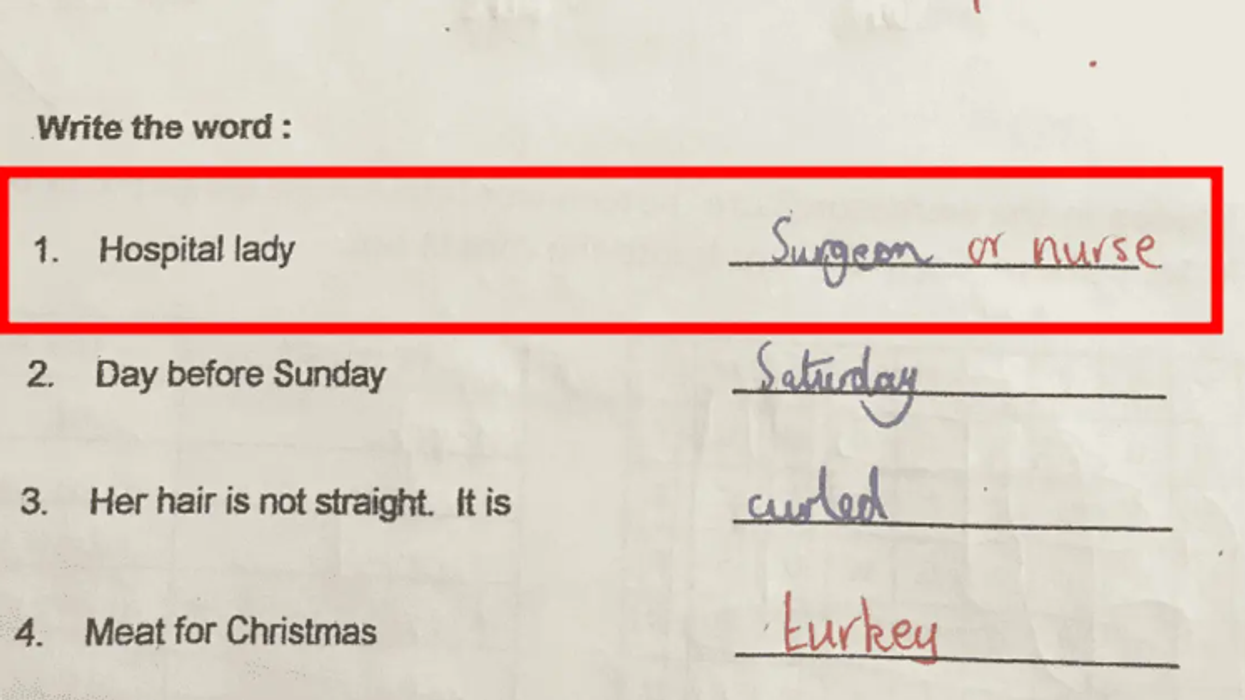












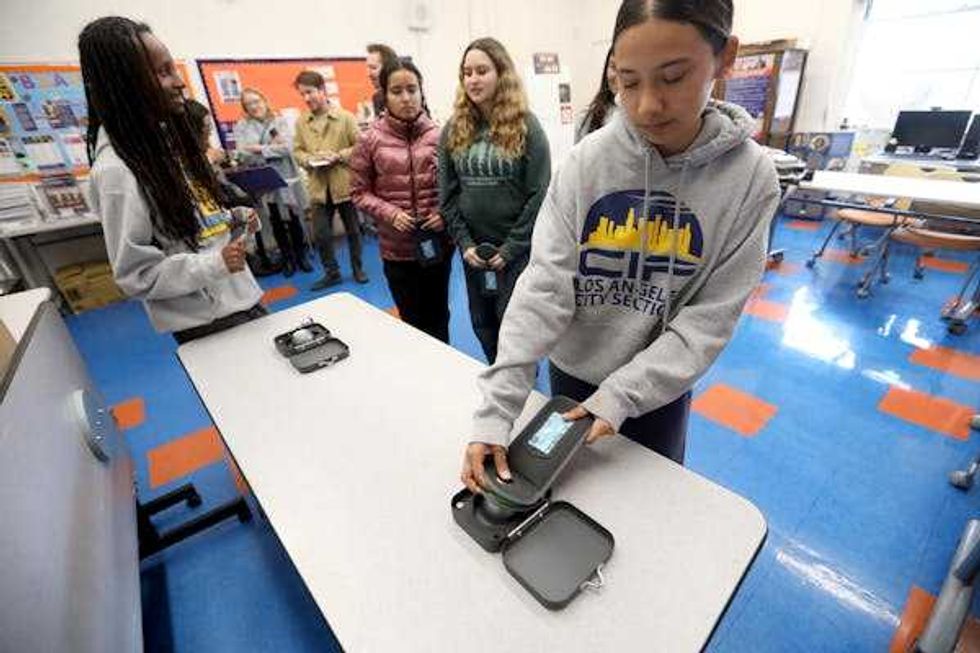 A high school senior shows how to unlock a magnetic pouch that holds her smartphone at University High School Charter in Los Angeles in March 2025.
A high school senior shows how to unlock a magnetic pouch that holds her smartphone at University High School Charter in Los Angeles in March 2025.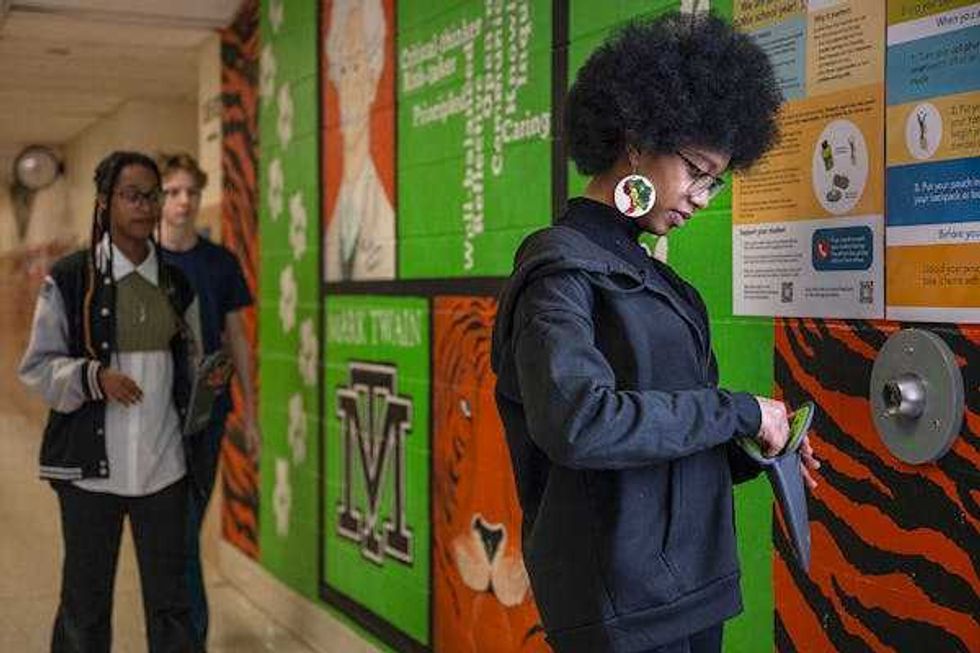 An eighth grader unlocks her cellphone from a pouch at Mark Twain Middle School in Alexandria, Va., in March 2025.
An eighth grader unlocks her cellphone from a pouch at Mark Twain Middle School in Alexandria, Va., in March 2025.
 Gif of a mom wiping her child's dirty face via
Gif of a mom wiping her child's dirty face via 
 A woman holds a family member's hand in the hospitalCanva
A woman holds a family member's hand in the hospitalCanva A bird flying across the sky under the sunCanva
A bird flying across the sky under the sunCanva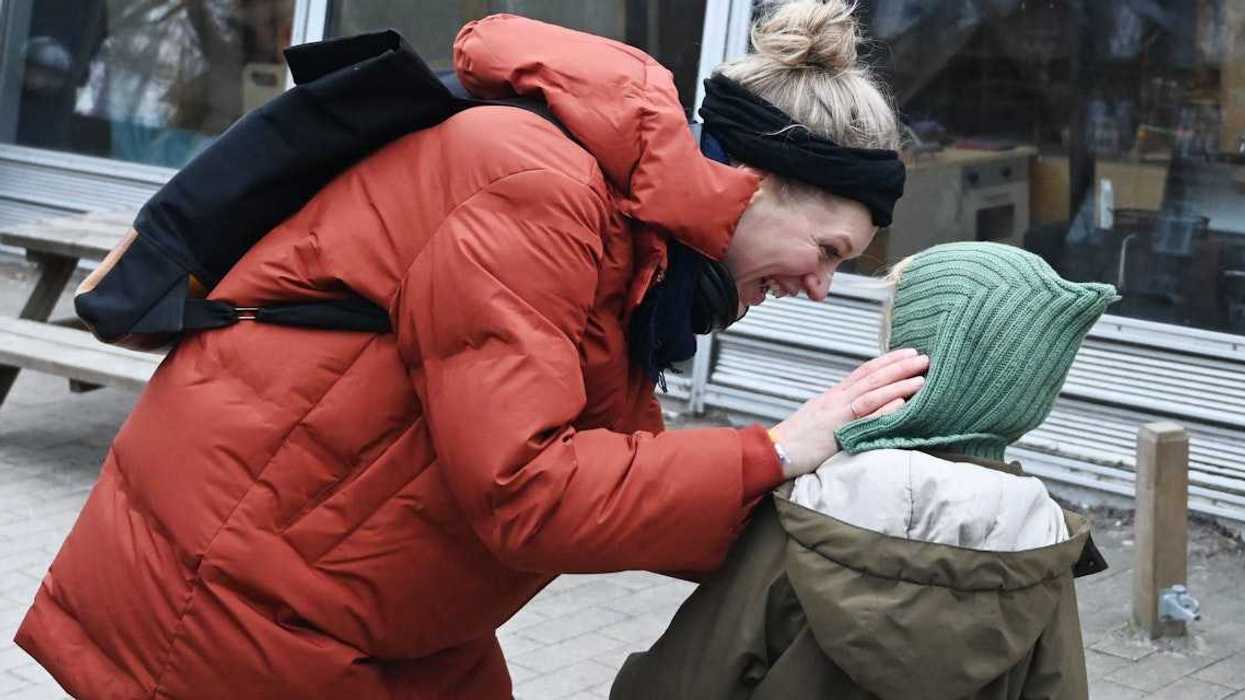
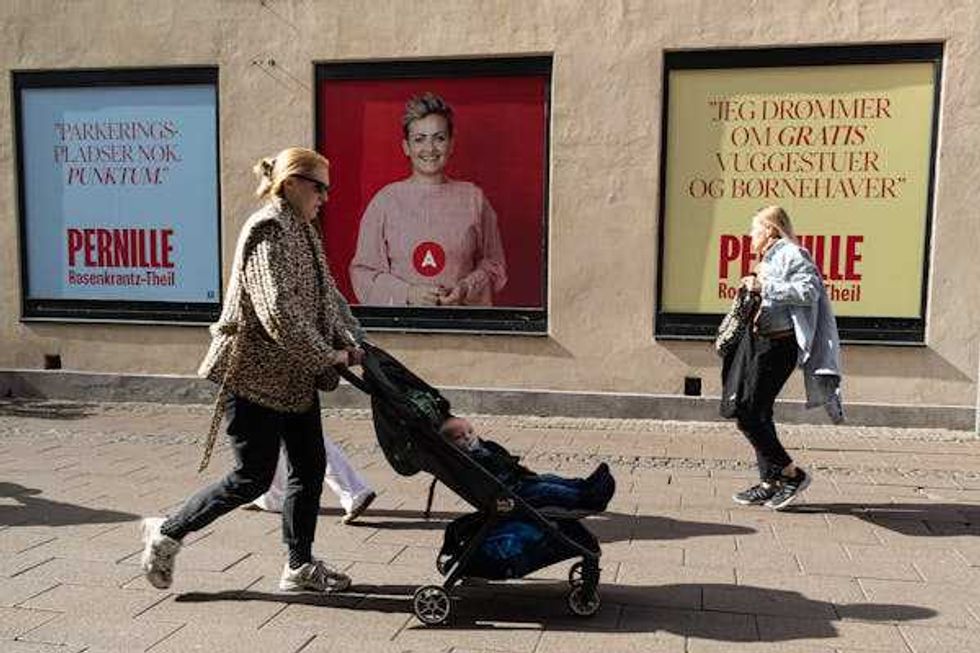 The ‘motherhood penalty’ is largest in the first year after a mom’s first birth or adoption.
The ‘motherhood penalty’ is largest in the first year after a mom’s first birth or adoption. 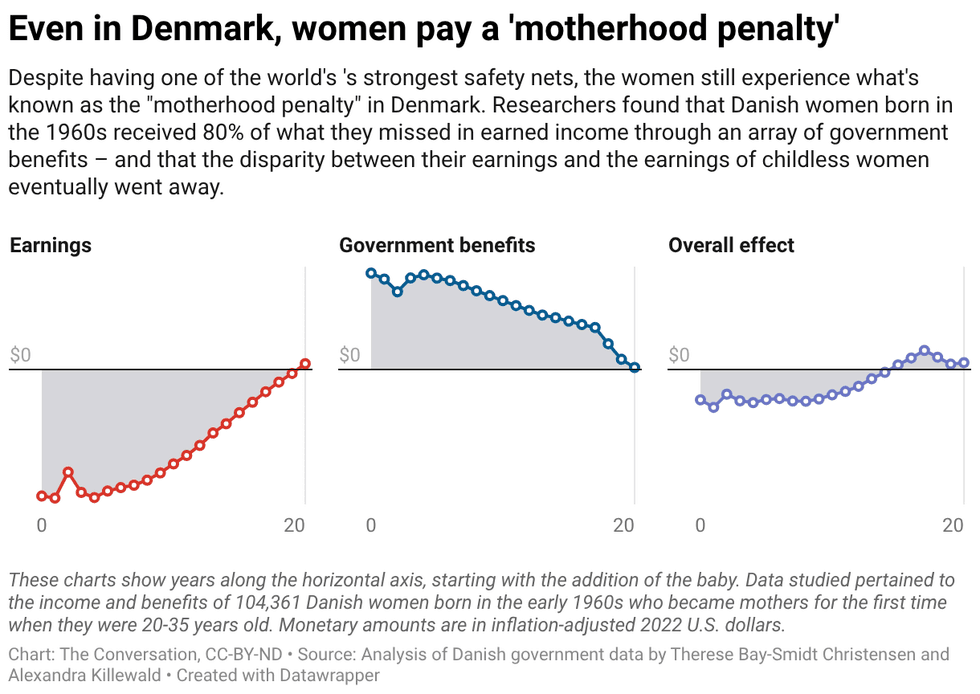


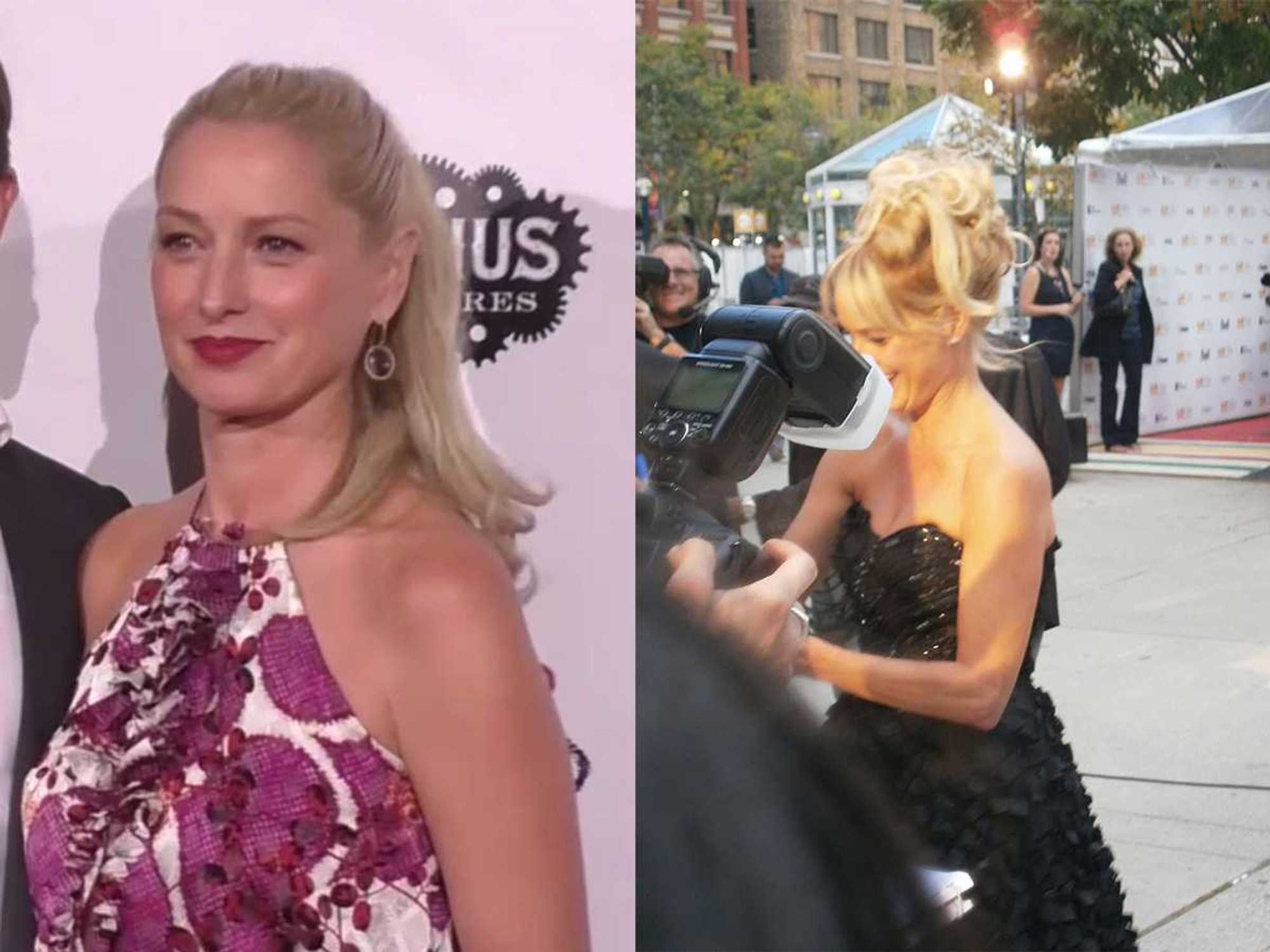 (LEFT) Film premiere at ArcLight Theatre Hollywood; (RIGHT) LaNasa signing autographs at TIFF.thepaparazzigamer/
(LEFT) Film premiere at ArcLight Theatre Hollywood; (RIGHT) LaNasa signing autographs at TIFF.thepaparazzigamer/  Radical acceptance.Photo credit:
Radical acceptance.Photo credit: 
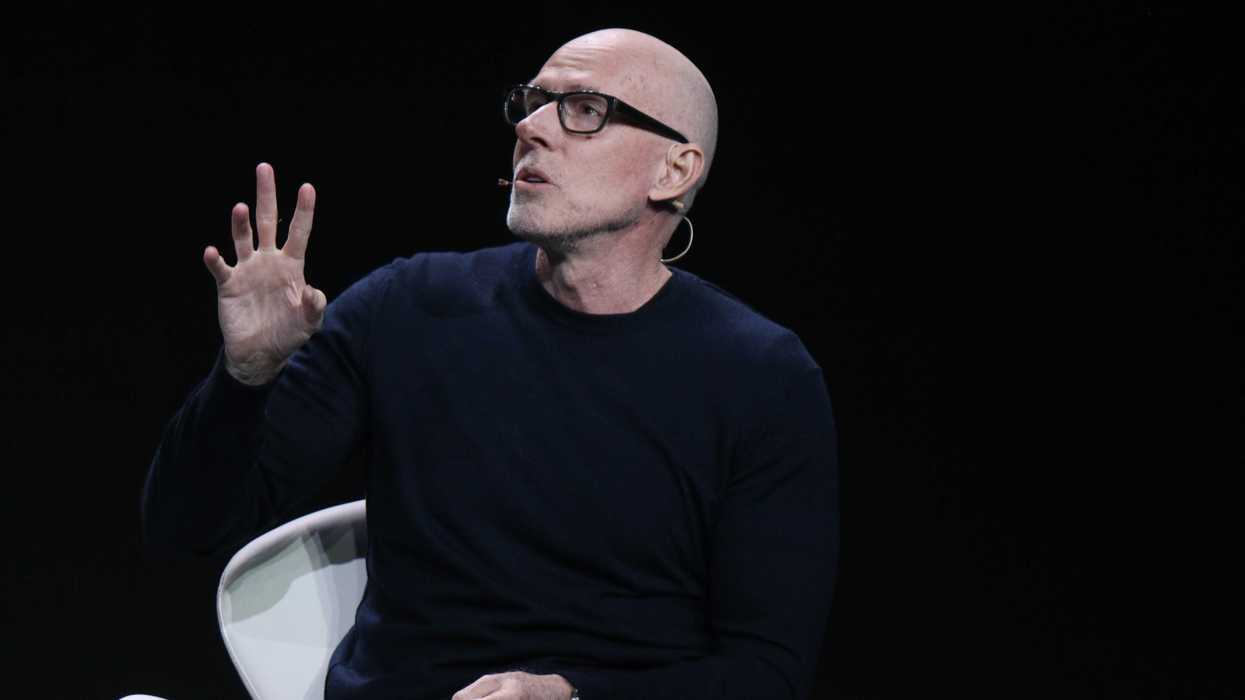 Scott Galloway in Barcelona in 2025.Photo credit: Xuthoria/
Scott Galloway in Barcelona in 2025.Photo credit: Xuthoria/  Resting in the shade of a tree.Photo credit:
Resting in the shade of a tree.Photo credit:  Two people thinking.Photo credit:
Two people thinking.Photo credit: 